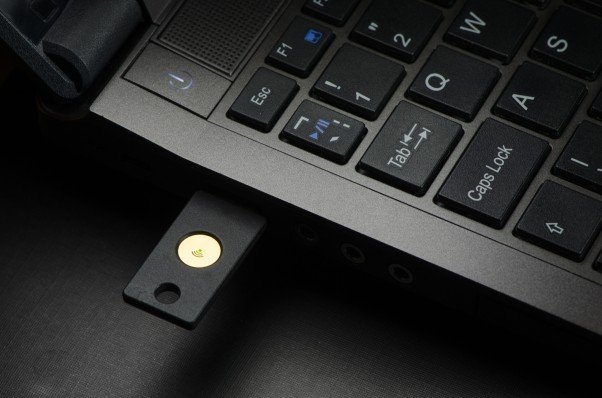The American company Yubico has unveiled a new series of his YubiKey. It concerns the 5 Series, which consists of the YubiKey 5C, the YubiKey 6 NFC, the YubiKey 5 Nano and the YubiKey 5C Nano. According to Venturebeat, the keys are the first multi-protocol security keys that support the FIDO2 standard.
FIDO2 is a standard that is published and certified by the non-profit organization FIDO Alliance. When a FIDO2 device is registered with an online service, it creates a pair of keys. An offline private key on the device, and an online public key.
During authentication, the device proves to have the private key, by asking the user to enter a PIN code or fingerprint. This way of authentication is difficult to intercept for hackers. “The YubiKey 5 Series enables one-step and two-step verification when logging in, as well as multifactor secure login,” says CEO and founder Stina Ehrensvard.
All keys in these series, including the new YubiKey NFC, support FIDO U2F, smart card (PIV), Yubico OTP, OpenPGP, OATH-TOTP, OATH-HOTP and Challenge-Response schemes. In addition, they support three authentication options. There is a possibility to log in without a password and only with a YubiKey, an option to log in with a password and the YubiKey and a variant to log in with the YubiKey and a PIN code.
The new keys are for sale for $45.
275,000 keys
According to Yubico, since 2012 it has deployed 275,000 security keys at companies in 160 countries. These include Facebook and Salesforce.
Google is also a customer of the company, and since using the YubiKey, the Internet giant has not been the victim of phishing. In addition, the logins are four times faster and there are 92 percent fewer calls to the helpdesk for IT.
In August, Google unveiled its own security key, called the Titan Security Key.
This news article was automatically translated from Dutch to give Techzine.eu a head start. All news articles after September 1, 2019 are written in native English and NOT translated. All our background stories are written in native English as well. For more information read our launch article.